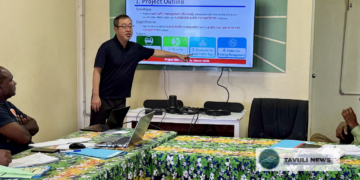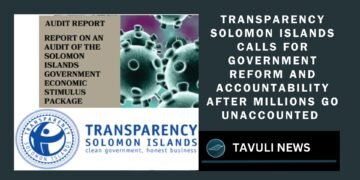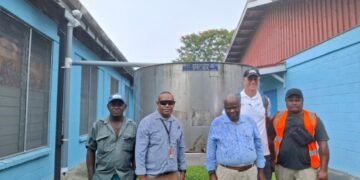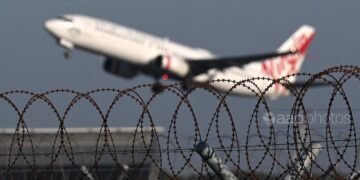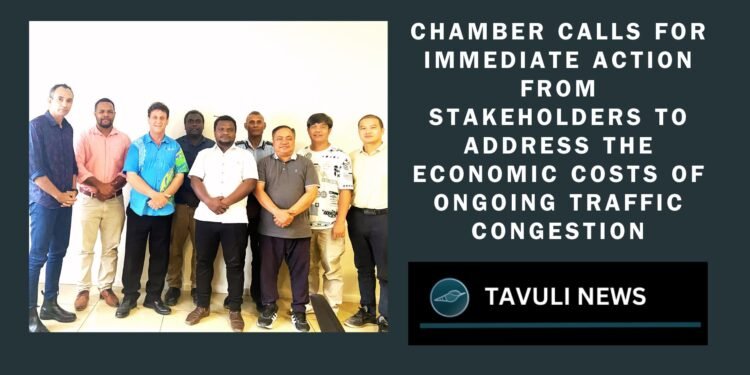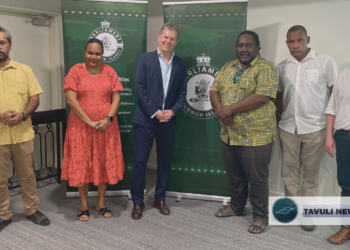SICCI highlights how severe traffic issues are causing significant losses and inefficiencies in Honiara’s business sector
The Solomon Islands Chamber of Commerce and Industry (SICCI) has raised significant concerns regarding ongoing traffic problems affecting East, Central, and Western parts of Honiara City.
SICCI members have recently expressed dissatisfaction with the current communication mechanisms related to construction timelines and road maintenance updates, which contribute to these traffic issues.
As the representative body for the private sector in the Solomon Islands, SICCI is highlighting the considerable impact of these traffic problems on local businesses and the broader economy. The organization is calling for proactive measures involving key stakeholders, including the Royal Solomon Islands Police Force (RSIPF), the Ministry of Infrastructure Development (MID), Honiara City Council (HCC), and China Civil Engineering Construction Corporation (CCECC), to address and mitigate the adverse effects of traffic congestion on the business sector.
In a recent roundtable discussion, SICCI’s Chief Executive Officer (CEO), James Dolarii, emphasized the critical role of the private sector in driving economic growth. He stated, “An enabling environment is essential for business growth and expansion. The current traffic issues are causing significant disruptions to business operations and economic activities.”
Dolarii stressed the need for immediate intervention to prevent further revenue losses and operational setbacks for SICCI members. He noted, “Small businesses with tight budgets are particularly affected, losing substantial amounts in a slow-moving economy like ours. Delays in service delivery, late arrivals of staff, increased logistics costs, and unbudgeted maintenance expenses are some of the challenges faced.”
SICCI is seeking to establish a close partnership and coordination with RSIPF, HCC, MID, CCECC, and other relevant stakeholders to develop strategies for controlling traffic congestion and creating a more conducive environment for business operations.
The organization appreciates the efforts of relevant authorities and stakeholders in addressing traffic concerns and looks forward to improvements in traffic flow across Honiara to support efficient and profitable business operations.
Among the attendees of the roundtable discussion were representatives from RSIPF, MID, CCECC, Solomon Water, and SICCI secretariat members.
Key Constraints Imposed by Traffic Issues on the Business Sector
- Workforce Challenges: Businesses face difficulties with timely employee travel, impacting daily operations and service delivery. Increased travel times hinder prompt commuting, especially for businesses reliant on human resources.
- Operational Setbacks: Traffic congestion complicates meeting deadlines and operating efficiently, leading to increased costs such as fuel, repairs, and overtime. While sales may decrease, operational costs continue to rise, affecting overall profitability.
- Economic Impact: The broader economic implications of traffic congestion include significant financial losses due to wasted time and increased operational expenses. These inefficiencies contribute to lost productivity and reduced economic output, further exacerbating the challenges faced by businesses.
- Client/Customer Services: Longer travel times have disrupted punctuality for meetings, appointments, and delivery schedules, leading to delays and negatively impacting customer satisfaction. This scenario could deter potential foreign investors.
Traffic congestion not only disrupts daily business operations but also imposes a broader economic cost. The time spent idling in traffic translates into significant financial losses. Businesses are incurring extra expenses on fuel, vehicle maintenance, and overtime wages, which could otherwise be invested in growth and development. Additionally, the inefficiencies lead to lost productivity and reduced economic output, further straining the already constrained business environment.
With SICCI









